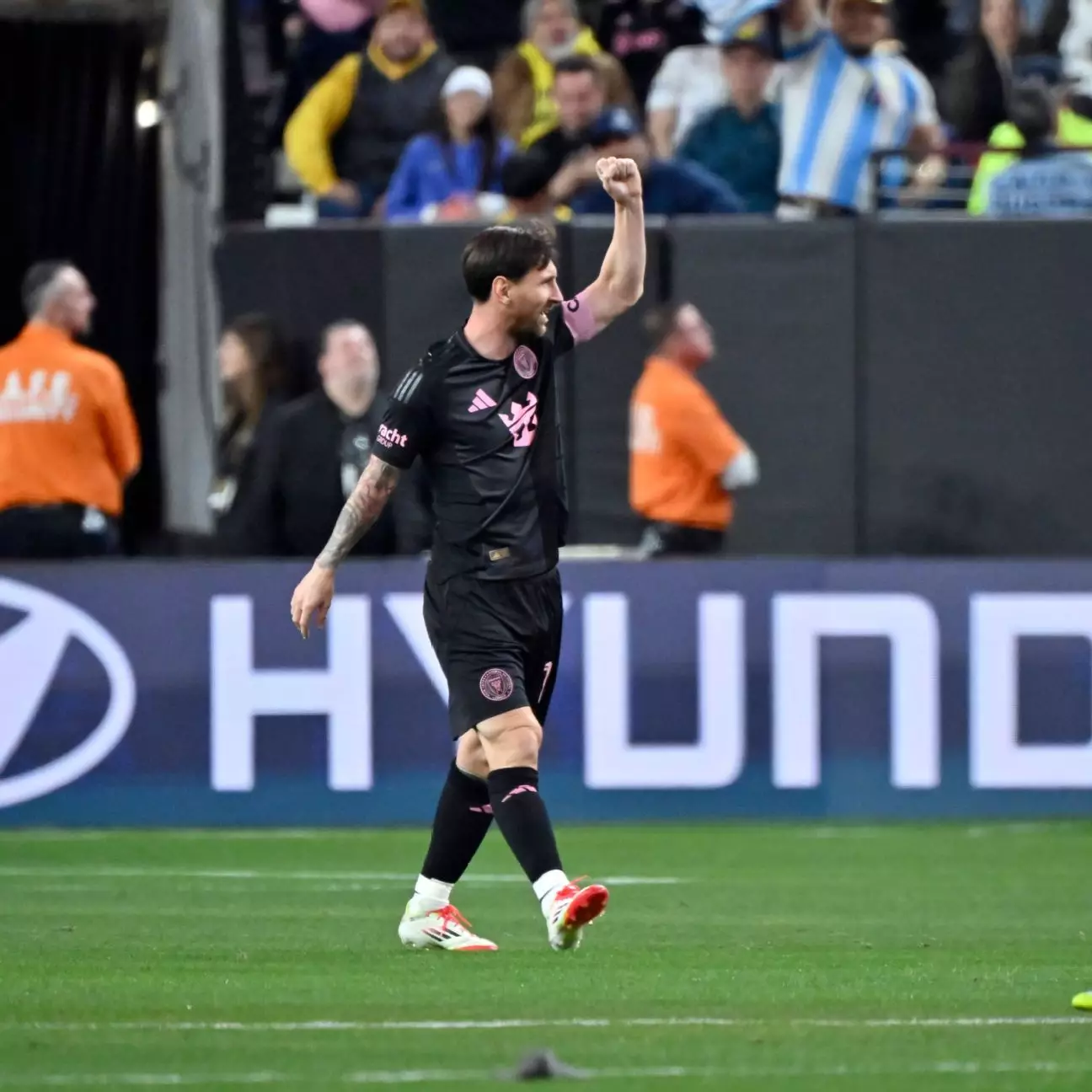As Inter Miami gears up for its competitive season, the spotlight remains firmly on their star player, Lionel Messi, and the ramifications of his actions during a recent friendly match against Club América. Head coach Javier Mascherano’s responses and insights into the match highlight not only Messi’s influence but also the cultural tensions involved in these cross-border encounters. The dynamics of such friendly games, especially when linked to a history of rivalry, pose unique challenges and opportunities for the team moving forward.
During the exhibition at Allegiant Stadium in Las Vegas, Messi scored a memorable goal that was followed by a celebration that drew criticism and contemplation. His gesture—a “3-0” signal symbolizing Argentina’s supremacy over Mexico in World Cup history—stirred emotions among the gathered fans and ignited conversations about sportsmanship and national pride. Mascherano’s subsequent dismissal of the situation underscores the necessity of focusing on tactical and team-building aspects, despite Messi’s celebrated status. The act could be seen as emblematic of underlying tensions from previous tournaments, thus making it both a moment of triumph and a flashpoint for controversy.
Mascherano’s remarks regarding the historically “hostile” nature of encounters between Argentine and Mexican teams bring to light a deeper narrative. The rivalry has roots in competitive soccer history, with several key matches characterized by high stakes and passionate fan bases. The national sentiment is amplified, especially after Mexico’s elimination by Argentina in the 2022 World Cup. These cultural tensions add another layer to the friendly matches, which are often expected to be played in the spirit of camaraderie.
Focusing on the match’s competitive aspects, Mascherano noted the challenges Inter Miami faced against a seasoned Club América side. He praised the Mexican club’s consistent performance over the years, emphasizing the need for his team to improve ball possession and overall tactical execution. This kind of self-assessment suggests a forward-thinking approach for Miami as it prepares for a busy schedule of matches. While Messi’s flair captures headlines, it is crucial for the coaching staff to implement strategies and training that will support long-term development and consistency.
With an itinerary that spans South and Central America, Inter Miami is poised for a steep learning curve as the club transitions through its preseason. Following the showdown with Universitario in Peru, the team will engage with Sporting San Miguelito in Panama and culminate in a fixture against Olimpia in Honduras. These engagements represent an opportunity not only for skill refinement but also for fostering team chemistry and depth.
Mascherano’s optimism regarding the squad’s health and readiness speaks to an encouraging atmosphere within the club. Even with minor injuries, players like Facundo Farías are expected to feature prominently, indicating a well-rounded team striving for greater cohesion.
As Inter Miami embarks on this journey, the spectrum of challenges they face reflects both the competitive nature of professional soccer and the rich narratives surrounding team dynamics, national histories, and star players’ impacts. Messi’s contributions extend beyond the pitch; his experiences frame critical discussions about identity, rivalry, and sportsmanship. As the team anticipates its fixtures ahead, striking the right balance between star power and tactical discipline will be paramount. The actions and attitudes exhibited during these matches will resonate deeply, shaping not just Inter Miami’s trajectory, but also the evolving legacy of soccer in the Americas.
